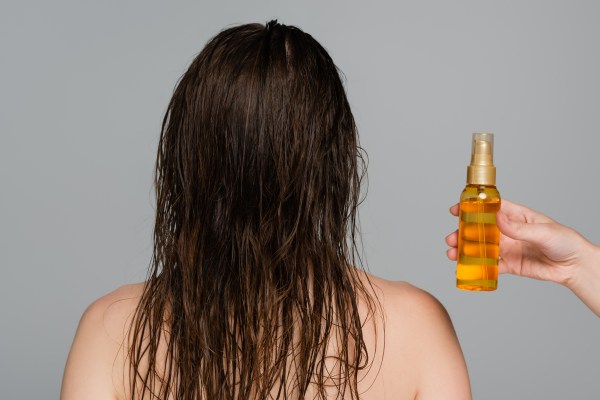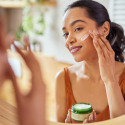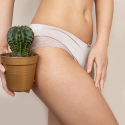The Benefits and Drawbacks of Hair Oils: A Thorough Overview
 Hair oils have gained popularity as a versatile component of hair care routines due to their nourishing properties. They are often celebrated for their ability to enhance hair health, but it’s essential to understand both their benefits and limitations. This guide provides a detailed examination of the advantages and potential drawbacks of using hair oils, helping you make informed decisions about incorporating them into your regimen.
Hair oils have gained popularity as a versatile component of hair care routines due to their nourishing properties. They are often celebrated for their ability to enhance hair health, but it’s essential to understand both their benefits and limitations. This guide provides a detailed examination of the advantages and potential drawbacks of using hair oils, helping you make informed decisions about incorporating them into your regimen.The Advantages of Using Hair Oils
Hair oils offer a variety of benefits that can significantly improve hair health and appearance:
1. Deep Conditioning and Hydration
Hair oils are excellent for deep conditioning:
Moisture Retention: Oils like argan, coconut, and olive oil help lock in moisture, preventing dryness and adding shine to your hair. They penetrate the hair shaft to provide intense hydration.
Softness and Smoothness: Regular use of hair oils can make your hair feel softer and smoother by reducing frizz and improving texture.
2. Strengthening and Repair
Certain oils are known for their strengthening properties:
Damage Repair: Oils such as jojoba and almond oil contain nutrients that help repair damaged hair, reducing split ends and breakage.
Strengthening Hair Follicles: Oils can nourish the scalp and strengthen hair follicles, potentially leading to thicker and healthier hair growth.
3. Scalp Health
Maintaining a healthy scalp is crucial for overall hair health:
Improving Scalp Circulation: Massaging oils into the scalp can enhance blood circulation, which may stimulate hair growth.
Soothing Irritation: Oils with anti-inflammatory properties, like tea tree oil, can help soothe an itchy or irritated scalp.
4. Enhanced Shine and Luster
Hair oils can provide a natural shine:
Glossy Finish: Applying a small amount of oil to the ends of your hair can give it a glossy, well-maintained appearance.
Color Enhancement: Oils can enhance the vibrancy of hair color, making it look more lustrous and vibrant.
Potential Drawbacks of Hair Oils
Despite their many benefits, hair oils have some limitations and potential downsides:
1. Risk of Overuse
Using too much oil can be problematic:
Greasy Residue: Overapplication of hair oil can leave your hair looking greasy and weighed down. It’s important to use the right amount for your hair type.
Difficult Removal: Excessive oil can be challenging to wash out and may require multiple washes, which can strip your hair of natural moisture.
2. Potential for Build-Up
Hair oils can lead to build-up if not used properly:
Product Build-Up: Frequent use of hair oils without proper cleansing can result in a build-up of product on your scalp and hair, leading to dullness and clogged follicles.
Scalp Congestion: Accumulation of oils on the scalp can potentially cause congestion and exacerbate issues like dandruff or acne.
3. Allergic Reactions and Sensitivities
Some individuals may experience adverse reactions:
Allergic Reactions: Certain oils might cause allergic reactions or sensitivities, especially if you have sensitive skin or allergies.
Irritation: Strongly scented or highly concentrated oils can irritate the scalp or skin, leading to discomfort or redness.
Tips for Optimal Use of Hair Oils
To maximize the benefits and minimize drawbacks, follow these guidelines:
1. Choose the Right Oil
Select oils based on your hair type and needs:
Light Oils for Fine Hair: If you have fine hair, opt for lighter oils like argan or jojoba to avoid weighing your hair down.
Heavy Oils for Dry Hair: For thicker or drier hair, heavier oils such as coconut or olive oil can provide more intensive moisture.
2. Apply Sparingly
Use oils in moderation to avoid overloading:
Small Amounts: Apply a small amount of oil to the ends or mid-lengths of your hair, avoiding the roots to prevent greasiness.
Regular Maintenance: Use hair oil treatments sparingly, incorporating them into your routine as needed rather than daily.
3. Proper Application Techniques
Follow effective application methods:
Pre-Shampoo Treatment: Apply oil before washing your hair as a deep conditioning treatment to enhance absorption.
Scalp Massage: Massage oil into your scalp gently to improve circulation and promote relaxation.
Conclusion
Hair oils can be a valuable addition to your hair care routine, offering significant benefits such as enhanced hydration, strength, and shine. However, they also come with potential drawbacks like the risk of overuse and build-up. By understanding both the advantages and limitations of hair oils, and applying them judiciously, you can achieve optimal results and maintain healthy, beautiful hair.









